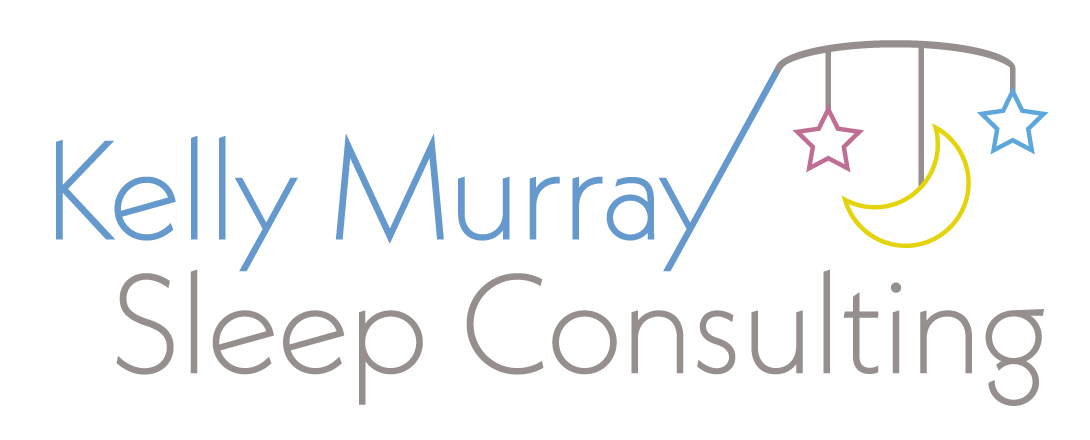When Can I Expect My Baby to Sleep Through the Night?
BY katie baker, Sleep Consultant
One of the most commonly asked questions that I get as a sleep consultant and mom of three is “when can I expect my baby to sleep through the night?”
It’s a popular question because every parent looks forward to that time when they can sort of get their life back on track and not be so sleep-deprived all the time.
The short answer to this question is when they are 12 to 15 pounds or double their birth weight.
Of course, if that doesn't seem right to you or you have any questions about that, you should talk to your pediatrician. But in general, when your baby is about that weight or is double their birth weight, they should be able to sleep through the night without a feed.
Some babies might need one feed in the middle of the night, but by about seven months old, we expect babies to make it through the night without a feed.
There are four things that you need to be paying attention to when you're trying to get your baby to sleep through the night.
The Sleep Environment
The first thing is an optimal sleep environment.
You want your baby's room to be like a cave, so you want it to be as dark as you can get it.
You want it to be nice and cool. We recommend between 68 to 72 degrees.
You want it to be quiet. Using a white noise machine to block out any external sounds such as: a gust of wind, something falling over, a creek in a floorboard, anything that may wake your baby up. White noise will help to drown all of that out!
Without an optimal sleep environment, it will be harder for your baby to sleep through the night.
Age Appropriate Schedule
The second thing to establish is an age appropriate schedule.
You’ll want to make sure that your baby is taking the recommended number of naps. Also ensuring that they're sleeping for the recommended amount of time during the day so that they're tired by bedtime, but not overtired.
This is important because if they are becoming overtired then it's actually going to make it harder for them to sleep through the night because their body is pumping cortisol, which is the fight or flight hormone. You may recognize it as a second wind; when you're really, really tired and then all of a sudden you're not. This is because you have cortisol going through your body.
For babies, when they have cortisol at bedtime, it's not good because they're going have a hard time falling asleep and staying asleep. This means fighting bedtime, waking in the nights, and even early morning wakeups.
You can combat this by ensuring your baby is taking the right amounts of naps and that they are going to bed at an age appropriate time.Typically that's somewhere between 6:30 and 8:30, and can depend on your family’s schedule.
This chart can help establish the age appropriate schedule
Adequate Nutrition
You want to make sure that during the day your baby is getting plenty of calories, plenty of nutrition so that they're able to sleep through the night without feeling hungry.
When you start to drop night feeds, you might start to notice that your baby is feeding more during the day. Whether that's increasing solids, increasing the volume of formula that you're giving them, or increasing the number of times and the length of time that you're breastfeeding during the day.
Independent Sleep Skills
The last thing that you need, which is typically the thing that parents have the most trouble with at this age, is teaching those independent sleep skills.
If you are helping your baby fall asleep every night, you're rocking them, you're nursing them, you're swaying them, you're singing to them until they fall asleep. When they wake up in the middle of the night, they're going to call out.
Did you know that everybody wakes up in the middle of the night?
Between sleep cycles, we come to a partial arousal to ensure our environment is still safe and then go right into the next cycle. As adults who sleep well, we don't even notice it. But for kids who do not know how to fall asleep on their own, when they wake up between those sleep cycles, they're going to cry, call for you until you come to help them back to sleep, which means neither of you are going to get a full night of sleep.
By teaching independent sleep skills, your baby will learn to put themselves back to sleep when they wake between their sleep cycles. For independent sleepers, a waking might not even really look like them waking up. They might just shuffle around or make a little bit of noise and go back to sleep.
So, teaching independent sleep skills will really help your baby make it through the night without needing your support between cycles.
Those four things are what we call the sleep equation!
With those four things nailed down, your baby will be well on their way to sleeping through the night.
My own experience with my 5 month old
Personally I have a 5 month old and she's still waking up once a night to feed. She has developed really great independent sleep skills pretty much since the beginning. She's my third, so I sort of credit it to that. As the third kid, she has had a lot of chances and opportunities to self soothe, fall asleep on her own.
We stick to a pretty reasonable schedule, her environment is good, and she eats well during the day. So we have the sleep equation, which means I know that she should be able to fall back to sleep if she wakes up.
However, when she does wake up and cry, I know that she needs something. She needs to be fed because she's hungry. I go into her room when she wakes up and I nurse her. She's always actively eating - she's not just nursing for comfort or to help her fall back to sleep. When she starts to slow down, that's when I put her back to bed and she falls right back to sleep.
If you have a similar set up going on for you, then that middle of the night feeding should disappear on its own when they're ready. I'm anticipating that in the next month or two, my daughter will drop that night feed on her own.
I am confident in this because if she's not hungry she's just going to use her independent sleep skills to fall right back to sleep. She's not going to need me.
And that's one of my favorite things about having that sleep equation! It’s nice to feel confident about what your baby needs in the middle of the night. When they have the sleep equation you know that when they wake crying that they need you for something other than just to help them fall back to sleep
We help families establish the sleep equation every day!
If you have any questions or want to learn more about how to help your baby sleep through the night, book a free discovery call and you’ll be able to chat with one of the amazing members of the Sleep Squad. We’d love to share how we can help you and your family!
All team members have completed training with Kelly and have learned the Murray Method. Kelly continues to support, guide and oversee the Sleep Squad as they work with the families who trust in us. This way, all clients are able to experience the same amazing results (and lots and lots of sleep).
Sweet Dreams…
Kelly Murray is a certified sleep coach and an award-winning pediatric sleep consultant based in Chicago offering sleep coaching services nationwide.


















